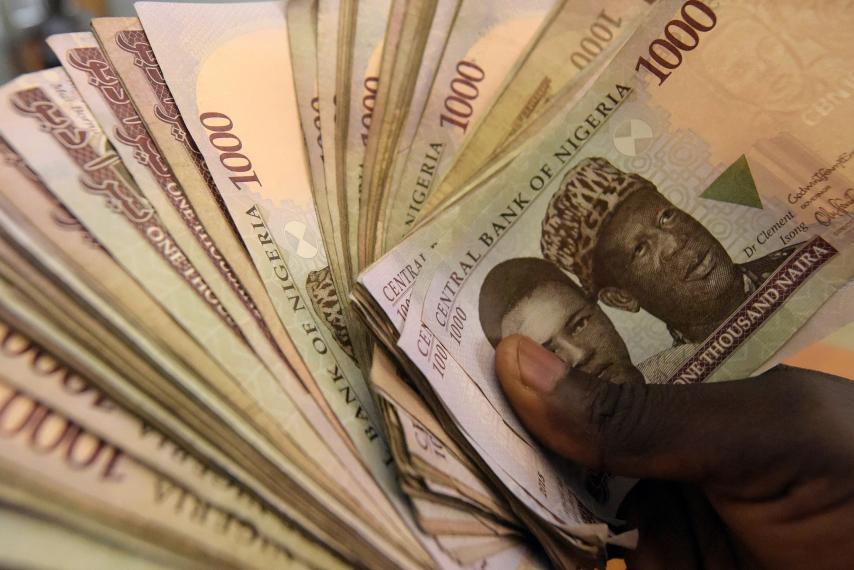- CBN Targets Stable Exchange Rate to Protect Naira’s Strength
A stable exchange rate to avoid depreciation of the naira is Nigeria’s target now, Central Bank of Nigeria (CBN) Governor Godwin Emefiele said yesterday.
He said as good as building reserves is, the present economic situation cannot allow that.
Besides, the country is not ready to increase taxes although there is the necessity to diversify the economic base, according to Minister of Finance Zainab Ahmed.
They spoke yesterday, the final day of the International Monetary Fund (IMF) and World Bank Group (WBG) Annual Meetings in Bali, Indonesia and after the Nigerian delegation’s meetings with investors and institutions.
Emefiele said all frontiers and developing markets had suffered depreciation and loss of reserves.
“We are very conscious of the need to build buffers but, unfortunately, I must say that we are in the period where it will be difficult to talk about building reserve buffers.
“We can only build reserve buffers if we want to hold on to the reserve and then allow the currency to go, and wherever it goes is something else.
“So it is a choice we have to make and at this time the choice for Nigeria is to maintain a stable exchange rate so that businesses can plan and we do not create problems in the banking system assets,” Emefiele said.
According to him, like other emerging markets nations, Nigeria has also lost reserves but only marginally because it has managed to sustain stability in its foreign exchange market.
The CBN governor said that the IMF and the World Bank advised that nations should build country specific policies and fiscal and structural reforms that would boost economic growth.
The Finance minister described the World Bank’s Human Capital Development Index (HCI) ranking, which placed Nigeria low at 44 per cent, as “stunting, disheartening and depressing”.
It is a wake-up call to the government, she said, adding: “We admit that this pervasive action was due to long years of under-investment in human capital, which we have before now realised and which we have been addressing.
“Apart from major policy actions, some decisive actions are being taken to address the situation.”
On possible tax hike, Mrs. Ahmed, who is the leader of the Nigerian delegation to the 2018 IMF and WBG meetings, said although there had been suggestions by the global financial institutions to increase local revenue generation along that line, raising tax was not being considered by the government.
She said government will keep the current tax regime unchanged”, as “to increase taxes would mean changing the laws and we are not ready to increase taxes”.
Mrs Ahmed, however, said she agreed with the IMF and the WBG that Nigeria should explore ways and means of diversifying the economy and increasing the country’s revenue profile.
Mrs. Ahmed, who addressed the Nigerian media, with Minister of Budget, Senator Udoma Udo Udoma, Emefiele, Nigeria’s Ambassador to Indonesia Hakeem Toyin Balogun and Securities and Exchange Commission (SEC) Acting Director-General Ms. Mary Uduk, said Nigeria’s problems were not so much that of debts, as much as of revenues, adding: “What we have is revenue problems not debt problems.”
According to her, the delegation held meetings with two rating agencies-Fitch and Moody’s – and presented to them the summary and synopsis of the recent economic and financial developments in Nigeria.
She added that it was an opportunity for the rating agencies to be able to objectively evaluate Nigeria’s credit.
Mrs Ahmed said she met IMF Managing Director Christine Lagarde and discussed Nigeria’s economy in view of the 2019 general elections.
She assured Lagarde that the election year would not pose any threat to the nation’s economic prospects.
Udoma said to improve HCI, the nation had improved budgetary allocation to health and education.
He said that allocation to education moved from N22.5 billion in 2015 to N102.9 billion in 2018.
The allocation to health was reviewed from N26.6 billion in 2015 to N86.49 billion in 2018.
Udoma said N55.19 billion had been added to the health budget in 2018 through the National Health Act.


 Forex4 weeks ago
Forex4 weeks ago
 Naira4 weeks ago
Naira4 weeks ago
 Billionaire Watch3 weeks ago
Billionaire Watch3 weeks ago



 Naira4 weeks ago
Naira4 weeks ago






 Naira3 weeks ago
Naira3 weeks ago


 Naira2 weeks ago
Naira2 weeks ago






 Naira2 weeks ago
Naira2 weeks ago


 Naira3 weeks ago
Naira3 weeks ago









